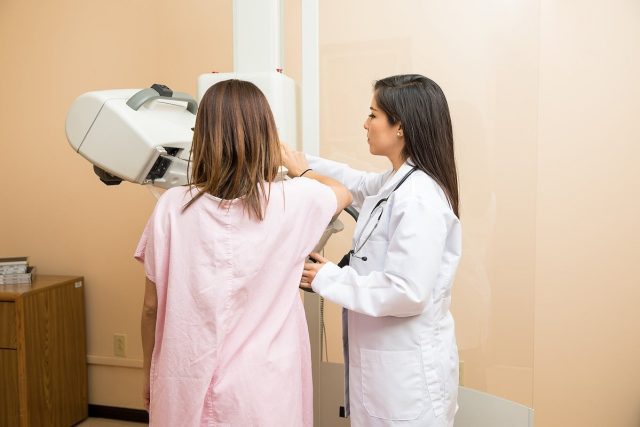Heart attack, stroke, heart failure, and death increase with breast arterial calcification
By Lori Solomon HealthDay Reporter
THURSDAY, March 27, 2025 (HealthDay News) — Automated deep learning-based quantification of breast arterial calcification (BAC) on routine screening mammograms may allow for opportunistic screening for cardiovascular disease events and death in women, according to a study presented at the annual meeting of the American College of Cardiology, held from March 29 to 31 in Chicago.
Theo Dapamede, M.D., Ph.D., from Emory University in Atlanta, and colleagues examined the prognostic value of BAC for adverse cardiovascular disease events and all-cause death in the general population. A deep learning model was built on data from 56,605 women with screening mammograms between 2013 and 2020 and at least five years of follow-up.
The researchers found that event rates for acute myocardial infarction, stroke, heart failure, or all-cause death significantly increased with BAC level in patients aged younger than 60 years and 60 to 80 years. Compared with patients with BAC <10 mm2, patients with BAC >40 mm2 had lower average five-year event-free survival (acute myocardial infarction: 96.8 versus 91.0 percent; stroke: 93.1 versus 83.7 percent; heart failure: 95.7 versus 84.7 percent; death: 95.3 versus 86.4 percent).
“Advances in deep learning and artificial intelligence have made it much more feasible to extract and use more information from images to inform opportunistic screening,” Dapamede said in a statement.
Copyright © 2025 HealthDay. All rights reserved.



















